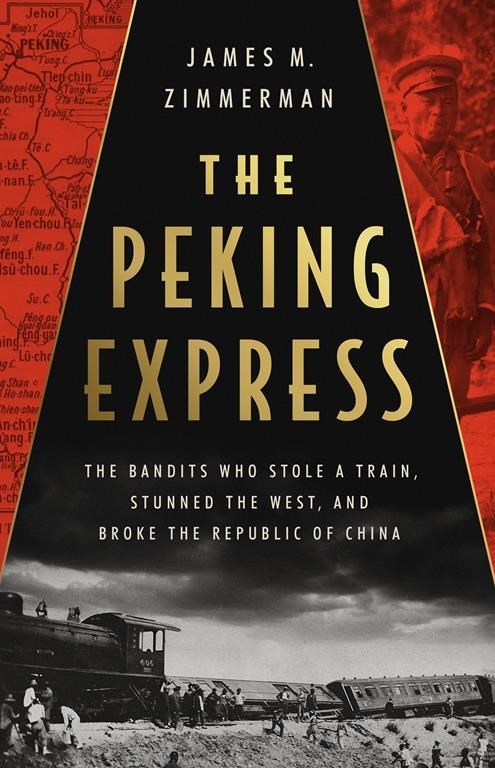ŌĆ£The Peking Express: The Bandits Who Stole a Train, Stunned the West, and Broke the Republic of ChinaŌĆØ by James M. Zimmerman (PublicAffairs)
A little-known piece of history is resurfacing 100 years after the luxurious Peking Express train was attacked by bandits in the middle of the night and hundreds of passengers, including dozens of foreigners, were taken hostage and marched across the Chinese countryside.
James M. Zimmerman's ŌĆ£The Peking Express: The Bandits Who Stole a Train, Stunned the West, and Broke the Republic of ChinaŌĆØ takes mountains of research and boils it down to a digestible telling of the 1923 train derailment that, despite having considerable political and personal consequences, had been largely forgotten. Aided by pictures and quotes ŌĆö some directly from the bandits, hostages and other players involved in the so-called Lincheng Outrage ŌĆö the lawyer takes on a surprisingly engaging voice as a historical author, cutting between people and scenes like a movie.
Drawing heavily from firsthand accounts and news coverage from the time, the whole tone has a slight air of an early 20th-century radio report so that you can almost hear a transatlantic accent in the words.
The sourcing also provides quirky eccentricities to illuminate the various folks at play throughout the story: Hostage Lucy Aldrich is an overweight, hard-of-hearing spinster who doesnŌĆÖt take grief from the bandits, even bossing them around from time to time; Russky is a well-traveled, vodka-drinking bandit who can belt out a Chinese or Russian folk song at a moment's notice and brighten the spirits of both the hostages and his fellow bandits.
Those details ŌĆö with a touch of the racism, sexism and ageism for a well-rounded view of the time ŌĆö become vital to keeping the characters straight and the story interesting, as well as understanding people's motives.
And ŌĆ£The Peking ExpressŌĆØ is friendly for popping in and out. While it reads well chronologically, you can also pick a section of personal import and have enough context that you wonŌĆÖt be lost. ThereŌĆÖs a detailed index, maps and even a character list for easy reference.
Tasked with balancing dry geopolitics and tricky negotiations with the human experience and emotion that make it important and impactful, Zimmerman is mostly ŌĆö but not entirely ŌĆö successful.
Slow moments dot ŌĆ£The Peking Express.ŌĆØ But the bits that drag are balanced by shocks of emotion cycling through camaraderie, disgust, elation and many more as the complex situation brings together totally disparate lives.
If you like historically accurate retellings of niche events, youŌĆÖll be pleased. If nonfiction isnŌĆÖt normally your thing, this may not be magical or exciting enough to keep you locked in, but if youŌĆÖre willing to go along for the ride youŌĆÖll find transportive moments and highlights of intrigue.
___
Ed's Note: The bookŌĆÖs author has done legal work on occasion for the AP ŌĆö he is retained by some U.S. media including the AP for advice on some of the legal challenges the news media.
Donna Edwards, The Associated Press



